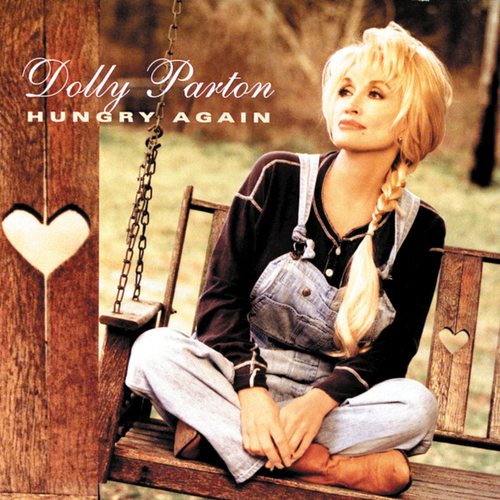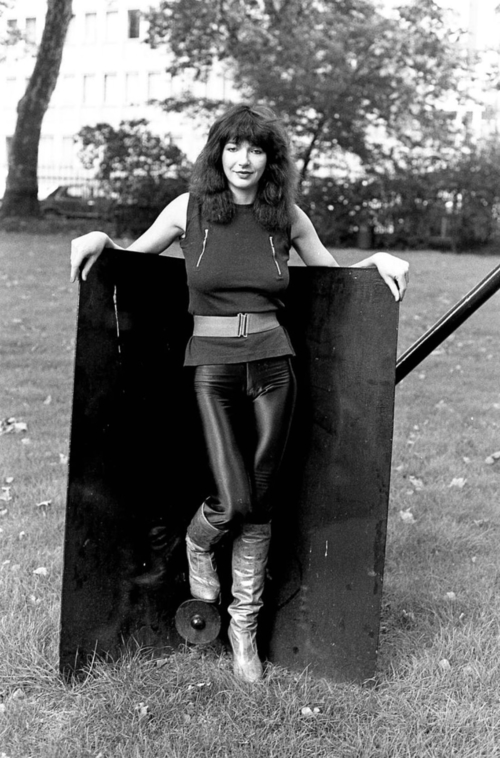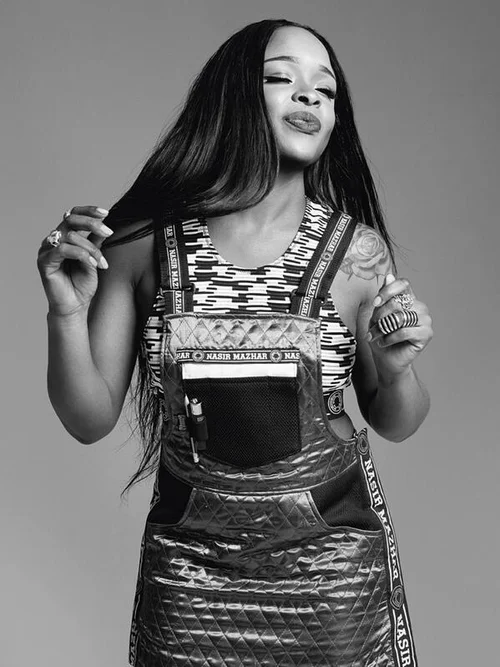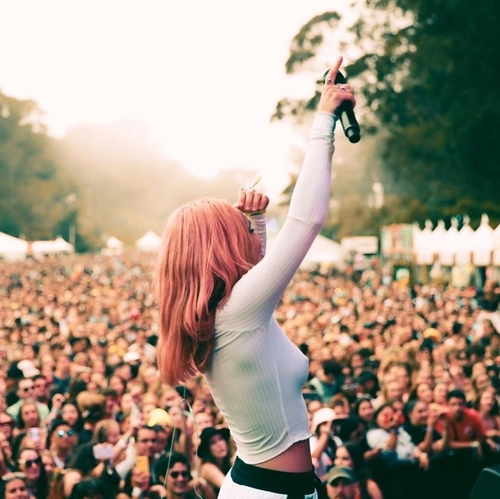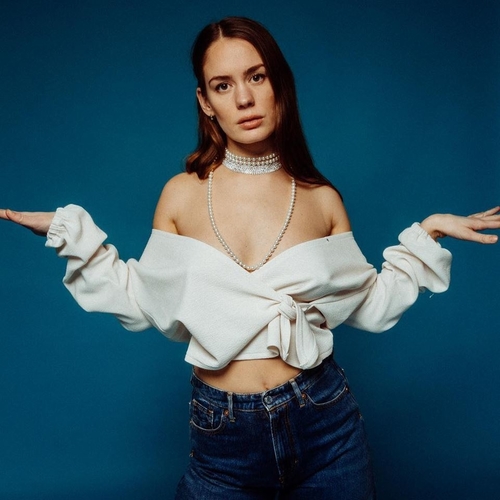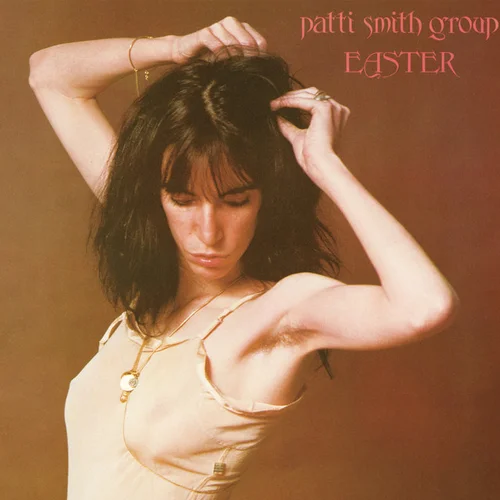FEATURE:
Vinyl Corner
Missy Elliott – Supa Dupa Fly
_________
IT is not often I get…
IN THIS PHOTO: Missy Elliott/PHOTO CREDIT: Getty Images
to put a Hip-Hop album into Vinyl Corner. That is my own fault but, with Missy Elliott’s ICONOLOGY E.P. out now, I have been thinking about this legend and her start. Her debut album, Supa Dupa Fly, was released in 1997 and remains one of her best-known and regarded works. The story of Missy Elliott and her start is an interesting one. She was part of a group called Sista who, whilst playing in high-school, caught the eye of Swing Mob. The group recorded an album but it was never released – their contract was terminated. That might have been all we heard from Missy Elliott but, returning to her home in Virginia, she recorded songs here and there; she contributed to Aaliyah’s album, One in a Million, and keeping active. Elliott soon signed to Elektra Records and embarked on her first solo record. Produced by Timbaland – who Elliott worked with on Aaliyah’s album – Supa Dupa Fly was a huge success. I recommend people buy the album on vinyl because it sounds extraordinary in that format; somehow more real and evocative. Supa Dupa Fly combines aspects of Dance, Electronic and Hip-Hop to superb affect. In 1997, there were some great female rappers around but none who had the same flow and imagination of Missy Elliott. On the album, Elliott is often funny, loose and freewheelin’; her delivery is incredible and, whilst there is humour to be found, we hear about womanhood, respect from her lovers and society as a whole.
It is a huge and confident debut album that takes no prisoners but is easily accessible. You do not need to be stepped in Hip-Hop or come from where Missy Elliott did to understand the tracks. They are so inventive and busy that you need to listen to Supa Dupa Fly several times through. The album sounds as remarkable and original as it did back in 1997 and, in today’s scene, it actually feels fresher and more thrilling – there is nothing around like it! I want to bring in one review of the album, from Pitchfork that talks about the brilliance of Missy Elliott and Supa Dupa Fly:
“While much of the music of the time was powered by well-known samples, including Bad Boy’s hits such as “Mo Money Mo Problems” (which flipped Diana Ross’ “I’m Coming Out”) and “Can’t Nobody Hold Me Down” (based on Grandmaster Flash’s “The Message”), Timbaland and Missy preferred not to sample—and if they did, it had to be interesting. Timbaland would speed up vocal samples just to use as them as a bass line. He used breakbeats in a unique way, too, employing them to create pauses and longer stretches of silence. The dead space became its own canvas within the beat where Timbaland could use overlays of beatboxing, clicks, and just about any cool sound, from a baby’s cry to an Egyptian flute. But it was the intuitive songwriting style and unique imprint of Missy’s pen that would make the duo a top-tier act.
This talk was especially innovative coming from a curvy, gender-bending woman who often appeared in exaggerated and animated form in her videos. In the iconic visual for “The Rain(Supa Dupa Fly),” Missy appears as a Michelin woman, dancing into the camera while wearing a giant plastic bag suit and biker’s helmet. The costume made her look even bigger than she was but also took away the obviousness that she was not a thin Lolita type. In the same video she wears a straight wig and sits on a hill twirling it in caricature of Lil Bo Peep. “We wanted to make fun of the ways record companies try to make black women look white,” Missy has said. “Fake hair, fake music.”
This talk was especially innovative coming from a curvy, gender-bending woman who often appeared in exaggerated and animated form in her videos. In the iconic visual for “The Rain(Supa Dupa Fly),” Missy appears as a Michelin woman, dancing into the camera while wearing a giant plastic bag suit and biker’s helmet. The costume made her look even bigger than she was but also took away the obviousness that she was not a thin Lolita type. In the same video she wears a straight wig and sits on a hill twirling it in caricature of Lil Bo Peep. “We wanted to make fun of the ways record companies try to make black women look white,” Missy has said. “Fake hair, fake music.”
She was quite aware of how she looked and how the mostly male-audience of rap would receive her but she did not cower away from being the sexual aggressor. Missy rapped and sang about the woman who was self-assured and still sensitive to heartbreak; one that knew what she wanted enough to demand it but was prone to getting hurt. Even better, because of her “lack” of sexual appeal to the market of the time, she was able to skip the highly-sexualized performative nature of her female rap contemporaries. Many of those acts spun objectification into sexual empowerment, and Missy also empowered those who may have been told that their bodies were not attractive and therefore not valuable to consumers”.
From its lyrical swagger to the confidence of Missy Elliott; to the language used and the fact Supa Dupa Fly was a revelation and shockwave, it is one of the most underrated Rap/Hip-Hop albums ever. There are multiple reasons why we need to reinvestigate and revisit this album but, the fact Missy Elliott has released new material, many people are looking back and checking out her music. She remains one of the most important voices on the block and I know this will be the case for many years to come. I will end the feature shortly but, before I do, I want to bring in a feature from DAZED. They talk about the album’s various sides but I have selected passages that discuss Supa Dupa Fly’s reinvention of Rap and the unique language employed:
“In the late 90s rap was still heavily provincial, but Supa Dupa Fly balanced the best of the era’s dominant scenes. The album had southern swagger and attitude without the molasses drawl or frequent lack of substance, while also boasting East Coast craftsmanship and adroitness without the grueling feeling of an MC trying to prove their lyrical dexterity. There are plenty of samples on the album, from obvious ones like Musical Youth’s “Pass the Dutchie” and “I Can’t Stand the Rain” by Ann Peebles to subtler flips like Teena Marie’s “Square Biz” and Rufus Thomas’ “Do the Funky Chicken”, but they’re all brought into Missy and Timbaland’s musical wheelhouse organically and rearranged into something that feels like it couldn’t have possibly existed in another form.
PHOTO CREDIT: Getty Images
Sometimes, that’s because they’re interpolated and sung by Missy, like the hook on “The Rain”, and other times they’re just plugged subtly seamlessly into the organized chaos of Timbaland’s skittering soundscapes, like the reference to “Square Biz”.
Supa Dupa Fly is filled with variations on Missy’s “hee-hee-haow” adlib, and throughout the record she manages to turn conventional rap language on its head and invent her own indelible dialect in the process. When she boasts “Me and Timbaland like haaa” on “Hit ‘Em Wit’ Da Hee,” the line exudes more bravado than any of her late 90s peers boasting about the size of their jewelry or the cars they drive. Her confidence is purer and even more undeniable because it manifests itself in a wholly unique way that doesn’t feel like an artist trying to keep up with the trends of the day”.
I do think Hip-Hop and Rap have changed: some would day for the better whilst others feels it sort of peaked in the 1980s and 1990s. Whilst I feel the scene is evolving and always growing, one cannot deny the importance of Missy Elliott. Articles like this argue Supa Dupa Fly is massively underrated. It is clear that, without Missy Elliott, we might not have artists like Beyoncé or Lady Gaga. Certainly, Missy Elliott brought feminism to the mainstream. Elliott is a survivor of sexual abuse and, on her 1997 debut, she encouraged women to reclaim their bodies and reject the passive narrative – women being seen as objects or not allowed to express their sexual desires. Fascinating retrospectives like this show what a legacy Supa Dupa Fly has and how it has impacted on modern music. It is a masterful debut from one of the biggest names in Hip-Hop. If you have not experienced this hugely influential album on vinyl then go and…
GRAB yourself a copy.







